
Latest News Regarding
Horn of Africa
Ending Somalia’s Election Impasse
Ending Somalia’s Election Impasse
Source: The International Crisis Group (ICG) published on 25 February 2021 a brief titled “A Last Chance to End Somalia’s Dangerous Election Impasse.”
Th ICG urges the United Nations and African Union backed by the US, EU, UK, Turkey, Qatar, and UAE to step in to the Somali election impasse and to broker a deal for moving forward. 0 commentsLabels: AU, elections, EU, Mohamed Abdullahi Farmajo, Qatar, Somalia, Turke
As Somalia’s COVID-19 cases surge, a variant is suspected
As Somalia’s COVID-19 cases surge, a variant is suspected




Source: AP, Friday February 26, 2021
By HASSAN BARISE
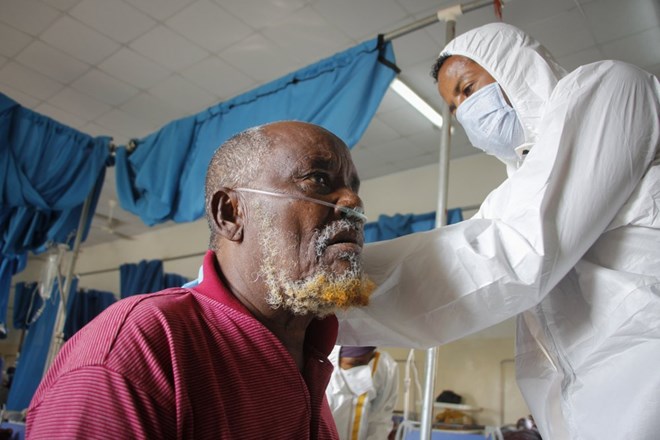
A doctor tends to a patient suffering from COVID-19 in a ward for coronavirus patients at the Martini hospital in Mogadishu, Somalia Wednesday, Feb. 24, 2021. (AP Photo/Farah Abdi Warsameh)
MOGADISHU, Somalia (AP) — A resurgence of COVID-19 cases is hitting Somalia hard, straining one of the world’s most fragile health systems, while officials await test results to show whether a more infectious variant of the coronavirus is spreading.
In the lone COVID-19 isolation center in the capital, Mogadishu, 50 people have died in the past two and a half weeks, Martini hospital deputy director Sadaq Adan Hussein told The Associated Press during a visit. Sixty other patients admitted during the period have recovered.
“We believe this second wave is the new variant of the virus,” he said. “Earlier, when 100 suspected patients were brought to quarantine, not more than 30 of them would be positive, but now almost all of them are infected.”
Somalia’s virus infections have jumped from 4,784 to 6,549 this month alone, according to official data.Test results for the presence of one of the new variants are expected next month, Sadaq said.
Somalia, like most African countries, has yet to see a dose of a COVID-19 vaccine, though they also are expected to start arriving next month.
Among the famous Somalis who have died from COVID-19 in recent days include well-known singer Fatuma Ali Nakruma and popular Islamic scholar Sheikh Nur Barud Gurhan.
Sadaq said a large, unnamed Somali-owned company had lost a dozen people to COVID-19 in just the past few days.
“Now you see how widespread is becoming this new variant of the virus, and we were not prepared for it,” he said.
Misinformation on social media claiming a far higher number of deaths in Somalia “has caused some people to avoid the hospital, where they would get the necessary care, and instead they die in their houses,” Sadaq said.
He called the rumors politically motivated.
Somalia’s current crisis around a delayed national election has contributed to the spread of COVID-19 as “social distancing is ignored,” Sadaq added.
The government has banned public gatherings, citing the pandemic, but opposition presidential candidates and other critics of President Mohamed Abdullahi Mohamed allege that the ban is instead meant to stifle their demonstrations calling on the president to step aside.
Another demonstration around the election delay was expected Friday in Mogadishu. The previous one last week was fired on by security forces.
Adding to anxiety, some health workers believe Somalia’s COVID-19 death toll is much higher than the official one of 218, saying it’s in part because many people believe they will receive better care in private hospitals.
“And yet many other people don’t even bother going to hospitals, and as a result either die or recover and nobody knows about them,” said Ahmed Farah Ali, a health worker at Sana hospital.
Somalia, like many countries across Africa, doesn’t have an official system for tracking mortality data, and even the number of graveyards in Mogadishu is unknown.
For months, many in Somalia took COVID-19 lightly as much of the world locked down. With the resurgence in cases, many Mogadishu residents are now wearing face masks and no longer shaking hands. Official telephone and radio messages about coronavirus prevention have returned.
Mosques, schools and markets are as active as before, however.
But there is a growing sense of loss.
At the Martini hospital’s isolation ward, a 15-year-old boy, Mahad Mohamed Ibrahim, was grieving his mother.
“The coronavirus has come into the city,” he said. “We need someone to stop it and give us medicine that would give us prevention. Now you see I am sad today as my mother died, and you will see many others whose parents will also die.”
Opposition calls off anti-government protest after striking deal with PM Roble
Opposition calls off anti-government protest after striking deal with PM Roble



Source: Hiiraan Online, Friday February 26, 2021
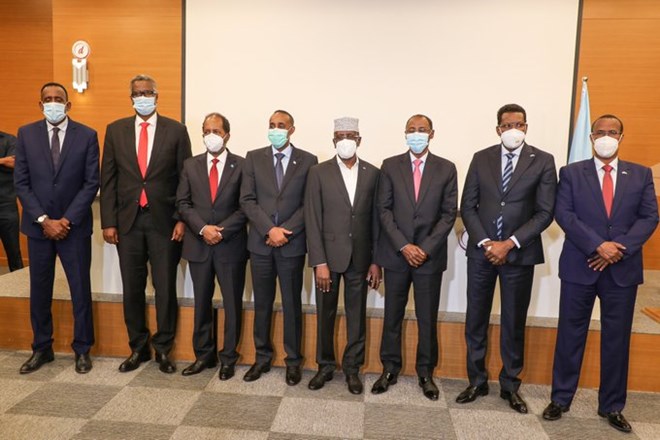
Mogadishu (HOL) – Talks between the federal government and the opposition candidates made a breakthrough on Thursday after meeting in Mogadishu, potentially averting another bloody day of protests.
PM Roble met with the Council of Presidential Candidates at Decale Hotel inside Aden Abdulle International Airport, where they discussed roadblocks to the electoral process. The talks were brokered by the Presidents of Galmudug, Hirshabelle and the Governor of Banadir.
They emerged from the meeting, with the opposition agreeing to postpone a planned demonstration due to take place in Mogadishu on Friday in exchange for concessions from the federal government.Among them, PM Roble formally expressed “regret” on behalf of the federal government for its involvement in a crackdown on demonstrators and candidates last Friday.
The opposition leaders previously claimed that President Mohamed Abdullahi Farmajo is sitting in office without a constitutional mandate, which expired on February 8.
The council agreed to delay their march for ten days while allowing the federal government to appoint an independent committee to investigate the incident. The federal government also reaffirmed the people’s right to protest.
PM Roble pushed back on firing the military commanders heading those units.
“I am pleased to address today the issues on February 19 incidents, security and elections. Thanks to the Union of Candidates for their flexibility and to President Mohamed Farmaajo, the Presidents of Galmudug, Hirshabelle and Benadir Governor for their contribution to the solution,” Roble tweeted on Thursday night.
“I call upon all to support it.”
The deal was welcomed by President Farmajo, who commended the PM for maneuvring an agreement with the opposition. Farmajo was not directly involved in the agreement.
“The President commended the FGS Prime Minister, HE Mohamed Hussein Roble, for his commitment to the collective agreement and the overall management of the electoral process and his commitment to the implementation of the September 17 Agreement reached by the Federal Government of Somalia. and the Member States, passed by both Houses of Parliament.”
It was also welcomed by Somalia’s international partners, who all released statements of concern following last week over the violent events which occurred in Mogadishu.
“The UN in Somalia applauds this step, which is in the interest of the citizens of Mogadishu and Somalia, and urges that all involved continue to engage in #dialogue to address other remaining issues in a spirit of compromise and goodwill.”
Nicolas Berlanga, EU Ambassador to Somalia, praised the council and the candidates in a tweet for resolving their issues at the negotiating table.
“I praise the esprit of compromise and responsibility by PM Roble and the members of the Presidential Candidates. The agreement build hope for a peaceful, neutral and inclusive organization of elections in a short delay. Encouraging peace of news for Somali citizens and partners”.
Both Puntland and Jubaland, who have each issued their own set of electoral ultimatums to the federal government, also voiced support for the resolutions reached in Mogadishu.
UN Security Council will meet today on Somalia
Source: UNSOM, 22 February 2021
UNSOM@UNSomaliaSource: ·8hThe @UN Security Council will meet at 6:00 p.m. today (#Mogadishu time) to discuss #Somalia, covering topics ranging from #elections to #humanitarian needs. Those briefing it include #UN envoy James Swan and @amisomsomalia‘s @AmbFMadeira. Details on where to watch it ‘live’ soon!AMISOM and 9 others
US Delinks Pause in Aid to Ethiopia from Large Dam on Blue Nile
US Delinks Pause in Aid to Ethiopia from Large Dam on Blue Nile
Source: Reuters published on 20 February 2021 an article titled “U.S. to De-link Ethiopian Aid Pause from Dam Policy.”
The US said it will de-link its pause on $272 million in development and security assistance to Ethiopia from its policy on the Grand Ethiopian Renaissance Dam on the Blue Nile that is part of a long-running dispute among Egypt, Ethiopia, and Sudan. The resumption of assistance remains tied, however, to other US concerns such as Ethiopia’s handling of the humanitarian crisis in Tigray Region. 0 commentsLabels: Egypt, Ethiopia, foreign aid, foreign policy, GERD, humanitarian crisis, hydropower, Sudan, Tigray Region, US
Local Violence Engulfs South Sudan
Local Violence Engulfs South Sudan
Source: UN News published on 19 February 2021 a summary of a new UN Human Rights Commission report on violence in South Sudan.
The UN Human Rights Council-appointed investigators said the bloodshed faced by civilians in South Sudan is the worst recorded since the country’s civil war began in December 2013. Most of the violence is occurring at the local level. The Commission members described the situation as shocking. 0 commentsLabels: abduction, child soldiers, Dinka, ethnicity, gender, human rights, Nuer, sexual violence, South Sudan, violence
Turkey voices concern over election unrest in Somalia
Turkey voices concern over election unrest in Somalia




Source: AA; Monday February 22, 2021
Foreign Ministry calls on parties in Somalia to ‘resolve disputes with inclusive and constructive dialogue’
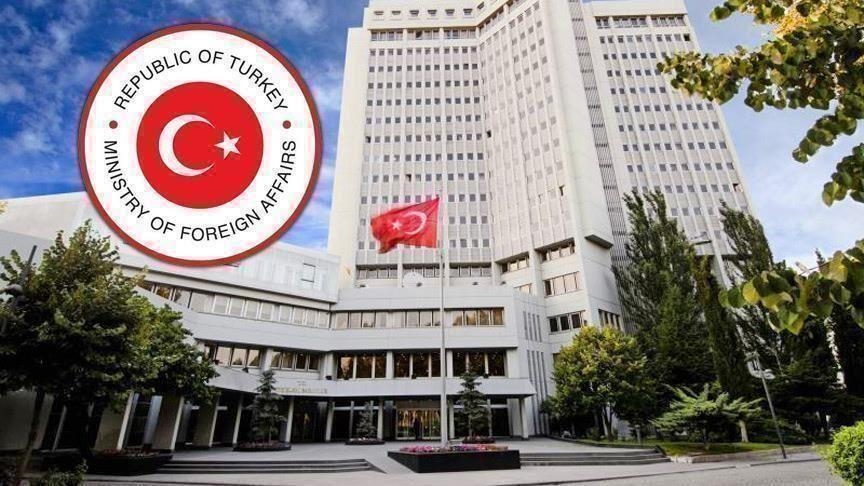
ISTANBUL—Turkey on Sunday expressed concern over unrest in Somalia as tension rises due to delayed elections in the country.
“We are concerned about the recent negative developments arising from the dispute over the election process in Somalia,” the Foreign Ministry said in a statement.“It is important that all parties act with common sense by avoiding steps that may lead to violence, and that the Federal Government and Federal Member States’ Leaders come together and try to resolve disputes with an inclusive and constructive dialogue on the basis of the agreement reached on 17 September 2020,” the statement added.
“We believe that the friendly and brotherly people of Somalia have the will and political maturity to determine their own future,” the ministry said.
“In this context, we hope that a consensus will be reached on the election process, on the basis of mutual understanding without further delay,” it added.
On Saturday, Somalia’s opposition vowed to push on with protests against the delay of the country’s elections, a day after violence flared up in the capital Mogadishu.
At least four people, including soldiers, were killed and three more wounded in a gunfight between military personnel and opposition members near the presidential palace on Friday.
Somalia’s opposition parties have launched protests against the government’s decision to defer elections, calling on President Mohamed Abdullahi Mohamed to step down as his constitutional mandate expired on Feb. 8.
In a bid to quell the demonstrations, the government has barred all public gatherings in the country, citing coronavirus risks.
It said the president will remain in office until the election is held, as approved in a resolution passed by the Somali parliament.
Violence in South Sudan engulfs country, 10 years after independence ‘children all have guns’

Source: UN News Center, 19 February 2021

Violence in South Sudan engulfs country, 10 years after independence ‘children all have guns’

OCHA/Cecilia AtteforsAn armed individual in the town of Pibor, in Jonglei state, South Sudan. Pibor has seen violent clashes and confrontations that have resulted in displacement as well as destruction of livelihood and property. (File) 19 February 2021Human Rights
Extreme violence and attacks involving thousands of fighters at a time have engulfed more than three-quarters of South Sudan, UN human Rights Council-appointed investigators said on Friday, warning that the bloodshed faced by civilians are “the worst recorded” since the country’s civil war began in December 2013.
Highlighting a continuing lack of local and national infrastructure almost a year since the formation of the Revitalized Transitional Government of National Unity in South Sudan, Yasmin Sooka, Chairperson of the Commission on Human Rights in the country noted that although the signing of the Revitalized Peace Agreement two years ago had “led to a reduction in hostilities at the national level”, the country seen “a massive escalation in violence” locally. https://platform.twitter.com/embed/Tweet.html?creatorScreenName=UN_News_Centre&dnt=false&embedId=twitter-widget-0&frame=false&hideCard=false&hideThread=false&id=1362711069182017537&lang=en&origin=https%3A%2F%2Fnews.un.org%2Fen%2Fstory%2F2021%2F02%2F1085202&siteScreenName=UN_News_Centre&theme=light&widgetsVersion=889aa01%3A1612811843556&width=550px
Power vacuum filled by fighting
Echoing that finding, Commission member Barney Afako explained that signing the cessation of hostilities ceasefire had left “a vacuum” at the community level.
“There are no governors in place or no county commissioners in place. So, there is nobody to deal with those cleavages which had remained. Instead what we saw, was that the weaponry that have been left in the community as well as that which is now supplied by others fuelled this communal violence”, he said.
Other worrying developments include restrictions and self-censorship among journalists and pressure groups.
New level of fear
“The level of State suppression and inability of civil society or journalists to operate is now completely different”, said Commission member Andrew Clapham. “There is sort of levels of fear and the State suppression and the fact that you can be picked up and tortured and killed is rather different”.
In its latest report, the Commission describes “waves of attacks and reprisals” that have left hundreds of South Sudanese women, men and children dead, maimed or destitute in Jonglei State and the Greater Pibor Administrative Area.
Ms. Sooka told journalists via video conference that the armed groups and militias had mobilized along ethnic lines, often with the support of armed State and opposition forces.
She highlighted clashes last year between allied Dinka and Nuer militias and Murle pastoralist militias with massive violations against civilians, including killing and displacement.
“We have documented the new levels of militia violence engulfing more than three-quarters of the country at a localized level in which children carry weapons and women are traded as spoils of war like chattels”, Ms. Sooka said.
‘Children all have guns’
The Commission Chairperson said that civilians described combatants using weapons that they had never seen before.
“One man told the Commission, ‘I went to Pibor town and I saw guns being sold there. There the black guns used by the NSS were being sold for 25,000 South Sudanese shillings, each less than a few hundred dollars.’ He also said that children all have guns”, she recounted.
Ms. Sooka also described as “shocking” the high number of fighters involved in localized conflicts and highlighted that women were traded as “spoils of war”.
Moreover, children carry weapons and the levels of violence “have already surpassed” those documented in December 2013, when civil war erupted.
Forced to fight, identities erased
Describing attacks in Jonglei and the Greater Pibor area, she pointed to “systemically and deliberately torched” homes, murders, forced displacements, abductions, rapes, sexual enslavement and, in some instances, forced marriages to captors. Abducted boys have been forced to fight and, sometimes “forcibly assimilated into rival armed groups”.
These victims have had their ethnic and other identities “completely erased”, according to the Commission’s report, which noted that as of December 2020, hundreds of abductees were still missing, with hundreds of thousands displaced by the violence and recurrent flooding.
The Commission on Human Rights in South Sudan is due to present its report to the Human Rights Council in Geneva on 10 March.  UN Photo: Isaac BillyMarket in Pibor town, South Sudan.
UN Photo: Isaac BillyMarket in Pibor town, South Sudan.
Exercise restraint and calm’, UN chief urges after violent outbreak in Somalia
Exercise restraint and calm’, UN chief urges after violent outbreak in Somalia




Source: UN News Center, Saturday February 20, 2021
Children stand before the remains of Mogadishu cathedral, built by the Italian colonial authorities in Somalia.RIN/Kate Holt
In a statement issued by his spokesperson, Farhan Haq, Secretary-General António Guterres called on all parties to “exercise restraint and calm”.
Gunfire erupted between Somali Government troops and opposition supporters during a protest march against delayed elections that turned violent. Demonstrators said that the Government forces had attacked them first and residents reported sporadic shooting and that rocket-propelled grenades had been fired, according to news sources.
The violence followed fighting overnight that had subsided by Friday afternoon.
Political impasse
While lawmakers were due to select a new President on 8 February, the process has been delayed.
“The Secretary-General urges the Federal Government of Somalia and Federal Member States leaders to urgently come together and finalize political agreement on the way forward for national elections, in line with the 17 September electoral model”, the statement said.
The UN chief also called for the “full respect of the rights to peaceful assembly and freedom of expression” and reiterated the UN’s full support to the people and Government of Somalia on their “path towards peace, stability and prosperity”.
1/2) The @UN in #Somalia is deeply concerned by armed clashes in #Mogadishu overnight and on Friday morning, calls for calm and restraint by all parties involved, and urges that open lines of communication be maintained to help reduce tensions. pic.twitter.com/4zhcuDnqxO— UNSOM (@UNSomalia) February 19, 2021
AU urges Somalia political class to avoid narrow partisan political interests
AU urges Somalia political class to avoid narrow partisan political interests




Source: Xinhuanet, Saturday February 20, 2021
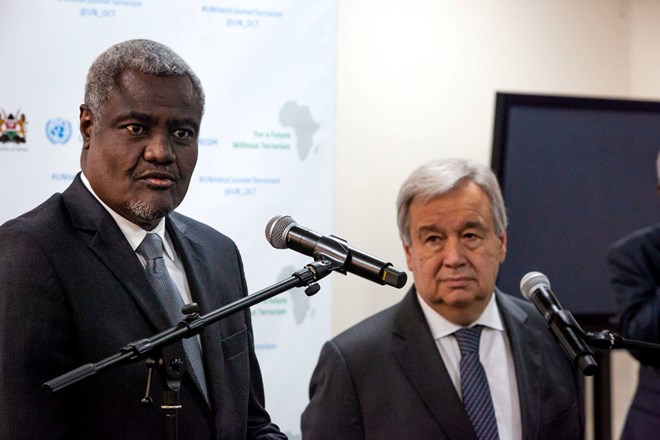
UN Secretary-General António Guterres (right) and Chairperson of the African Union Commission Moussa Faki Mahamat speak at a joint press stakeout in 2019. UNEP/Duncan Moore
ADDIS ABABA (Xinhua) — The African Union (AU) on Friday called on the entire Somalia political class to act in the interests of Somalia by avoiding narrow partisan political interests.
“The AU urges the Somalia leadership and the entire Somalia political class to act in the interests of Somalia as a whole, rather than narrow partisan political interests,” said a statement by Moussa Faki Mahamat, the chairperson of the AU Commission. “The people of Somalia have suffered for too long, and the current violence poses a serious threat to the Somali Transition Plan (STP), at the precise moment it is being finalized,” said the statement.
The AU chairperson condemned all forms of violence and called on Somalia stakeholders to refrain from acts that might jeopardize peace and security in the country, as well as to work together to find a consensual solution that will break current political stalemate.
Mahamat also urged all relevant Somalia stakeholders to avoid taking unilateral actions that might undermine efforts to effectively confront and degrade al-Shabaab and other terrorist groups.
AU, through African Union Mission in Somalia, will continue to uphold its mandate to support the federal government of Somalia and the Somalia people in their quest for peace and stability, said the chairperson.
The AU statement came amid sporadic gunfire and rockets exploded on the streets of Somali capital of Mogadishu, as security forces clashed with protesters pushing for delayed national elections.
The clashes came after the government said its forces foiled an attack on one of its military bases in Mogadishu.
Doctors report sudden coronavirus spike in Somalia
Doctors report sudden coronavirus spike in Somalia




Source: voa, By Harun Maruf
Tuesday February 16, 2021
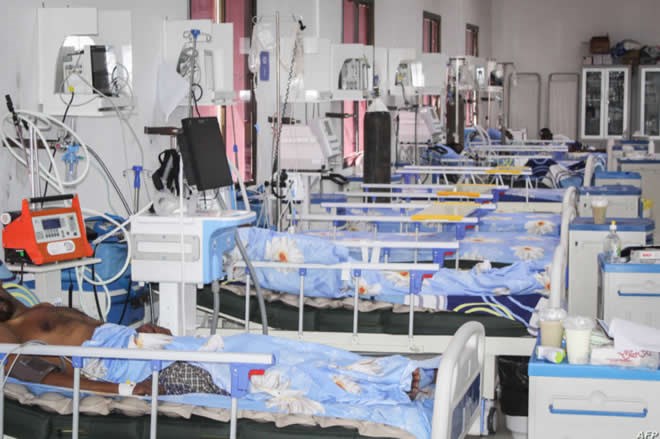
FILE – Beds are set for patients infected with the coronavirus, in the Intensive Care Unit at Martini hospital in Mogadishu, Somalia, July 29, 2020.
Health authorities in Somalia say the country has been hit by a second wave of the coronavirus, blaming travels abroad and public gatherings ahead of elections for the increase in cases.
Minister of Health and Social Care Dr. Fawziya Abikar said cases have increased 52% in February compared to January. She urged people to wear masks and avoid gatherings.
Dr. Abdirizak Yusuf Ahmed, director of de Martini hospital, the main medical facility for coronavirus patients, told VOA Somali that hospitalizations, positive results, and fatalities have all increased within the last two weeks. 6About 120 people died in Somalia in all of 2020, and more than 30 have died in 2021, he said.
“The trend that we are observing shows that most of the cases are imported and attributed to large-scale public gatherings, where essential public health measures are not enforced,” Dr. Mamunur Rahman Malik, the World Health Organization’s (WHO) Somalia country representative, told VOA Somali.
“It is difficult to verify, but owing to election season, many new travelers, especially from countries which are currently in lockdown, have arrived,” he said.
The overall number of coronavirus cases in Somalia remains small, with just 5,183 confirmed cases, and 152 deaths to date.
Ahmed said it is “epidemiologically possible” that new virus variants from Britain and South Africa have reached Somalia.
He said travelers from Britain and South Africa have tested positive for the virus and are now in hospitals. Health authorities in Somalia sent samples to Nigeria to verify if new variants exist in the country, he added.
Malik warned that progress is at risk of being pushed back, as there is no strong public campaign to ban public gatherings or for people to practice public safety measures.
Health officials said elderly people are paying the price, as transmission is going on at the household level.
Somalia is expecting a shipment of the AstraZeneca COVID-19 vaccine to arrive later this month.
WHO said Somalia will receive 1.2 million doses from Gavi, the Vaccine Alliance to vaccinate 600,000 front-line workers, including health professionals and staff in local governments.
More doses will come in March and April to cover 20% of the population. The Somali government will be responsible for finding resources to vaccinate the remaining 80% of the population.
Sudan-Ethiopia-Egypt Tension on the Nile
Sudan-Ethiopia-Egypt Tension on the Nile
Source: The Carnegie Middle East Center in Beirut published on 12 February 2021 an analysis titled “The Dam that Broke Open an Ethiopia-Egypt Dispute” by Sherif Mohyeldeen, nonresident scholar at the Center.
The paper assesses from a Sudanese perspective recent developments pertaining to Egyptian-Ethiopian disagreements over the Grand Ethiopian Renaissance Dam on the Blue Nile. 0 commentsLabels: Abdalla Hamdok, AU, Blue Nile, border conflict, Egypt, environment, Eritrea, Ethiopia, flooding, GERD, hydropower, Nile waters, Sudan, Trump administration, US
Maritime case to proceed, ICJ rules, objects Kenya’s application
Maritime case to proceed, ICJ rules, objects Kenya’s application



Source: Hiiraan Online, Saturday February 13, 2021
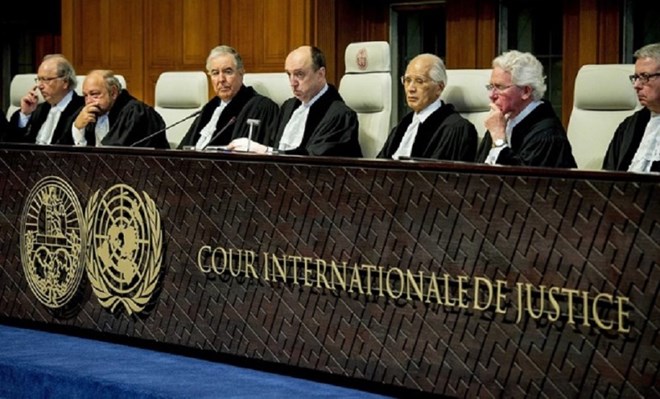
MOGADISHU (HOL) – The International Court of Justice has maintained the maritime case between Somalia and Kenya will continue next month dismissing Nairobi’s prayers for a further delay.
In a letter dated February 12 addressed to the Federal Government, the UN said the case will commence on March 15 as earlier set.
The proceedings will be in hybrid format meaning part of it will involve in-person appearance of the legal teams and through video conferencing.
Kenya had on January 28 applied for a third delay of the case citing the COVID19 pandemic, absence of a ‘substantive government’ in Somalia and ‘mysterious disappearance’ of a map it intended to use in its defense.
Information Minister Osman Dube said this week Somalia had written to the UN court objecting a further delay of the case. Kenya has since made three applications seeking the postponement of the case.
European Union Statement on Humanitarian Crisis in Tigray
European Union Statement on Humanitarian Crisis in Tigray
Source: The European Union posted on 8 February 2021 a press release titled “Ethiopia: Joint-Statement by High-Representative/Vice-President Josep Borrell, Commissioner Jutta Urpilainen and Commissioner Janez Lenarcic.“
The statement says the EU remains very concerned by the tragic humanitarian crisis unfolding in Tigray and its regional implications. Humanitarian access needs to be guaranteed and humanitarian assistance allowed to reach all affected areas and people in Tigray, and border areas of Afar and Amhara regions. The EU calls for the withdrawal of Eritrean troops from Ethiopia and access for local journalists and international media to Tigray.0 commentsLabels: Afar Region, Amhara Region, Eritrea, Ethiopia, EU, human rights, humanitarian assistance, humanitarian crisis, media, refugees, Tigray Region
South Sudan: Looking Ahead
South Sudan: Looking Ahead
Source: The International Crisis Group (ICG) published on 10 February 2021 a lengthy report titled “Toward a Viable Future for South Sudan.“
The ICG reports that the peace agreement in South Sudan is fragile and the threat of a return to full blown war remains. South Sudan’s political system must distribute power more broadly before elections can be held. 0 commentsLabels: civil society, elections, Ethiopia, governance, political parties, Riek Machar, Salva Kiir, South Sudan, SPLM, Suda
Somalia urges ICJ to dismiss Kenya’s prayers for further delay of maritime case
Somalia urges ICJ to dismiss Kenya’s prayers for further delay of maritime case




Source: Hiiraan Online, Thursday February 11, 2021
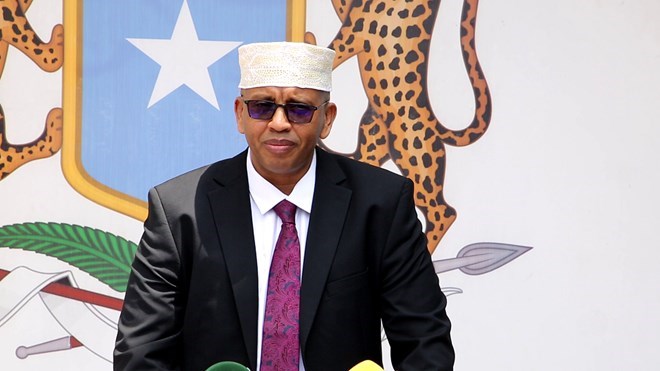
MOGADISHU (HOL) – Somalia has written to the International Court of Justice seeking the dismissal of a request by Kenya to yet again postpone the maritime case whose hearing is set to commence next month.
Information Minister Osman Dube told journalists in Mogadishu Thursday the Federal Government had petitioned the UN court against entertaining Kenya’s request. This is the fourth time Kenya is asking a delay.
Noting that should the ICJ entertain the Kenyan request Somalia will suffer injustice, Dube said the proceedings should go on uninterrupted. Kenya wrote to the ICJ January 28 seeking a further postponement of the case on three major grounds.
The first, sources privy to the letter said is the fact that Somalia is undergoing a transition. Nairobi argues that there is no substantive administration in Mogadishu owing to the lapse of President Mohamed Farmaajo’s term.
The Federal Government has however indicated there is no vacuum at that Farmaajo will be legitimately in office until a new president is elected.
Kenya has also claimed that one of the ‘crucial maps’ it intended to use in its defence had ‘mysteriously disappeared’. It was not immediately clear how this happened.
The ongoing COVID-19 is another excuse Kenya is fronting in its quest for a fourth delay of the case. The ICJ accepted Kenya’s last request early 2020 which cited the COVID-19 pandemic as ground for a delay.
UN Security Council urges Somalis to decide quickly on elections
UN Security Council urges Somalis to decide quickly on elections




Source: AFP, Wednesday February 10, 2021
Members of the United Nations Security Council meet at U.N. headquarters, April 5, 2017 in New York City. (Drew Angerer/Getty Images)
United Nations (United States) (AFP)—The UN Security Council called Tuesday on Somalia’s leaders to quickly resume dialogue to arrange new elections, hoping to resolve a new crisis in the violence-ravaged nation.
In a statement approved unanimously, the 15-nation Security Council asked Somalis to “resume their dialogue urgently and work together, in the interests of the people of Somalia.”The statement encouraged leaders to “reach consensus on the arrangements for the conduct of inclusive elections with a view to holding them as soon as possible.”
Britain called the closed-door meeting a day after Somalia’s central government and federal states missed a deadline on how to proceed with a vote on choosing the next president.
Due to the impasse, the opposition said it no longer recognized the authority of President Mohamed Abdullahi Mohamed, compounding trouble in a nation facing a violent Islamist insurgency, a locust invasion and serious food shortages.
In Washington, State Department spokesman Ned Price warned that delays in setting the election “will only increase the risk of instability.”
“While this is an issue for Somalis to resolve, the United States views immediate elections as critical to Somalia’s future. Consensus can be reached,” Price told reporters.
The Security Council also condemned renewed violence by the Shebab jihadist group and reaffirmed support for the territorial integrity of Somalia — where Somaliland declared independence during the 1991 civil war.
The Security Council will meet again on February 22 to renew the mandate of the African Union mission in Somalia.
Somalia’s clan system: undermining democracy?
Somalia’s clan system: undermining democracy?




Source: DW, Wednesday February 10, 2021
As the Horn of Africa nation struggles to reach a consensus on this year’s general election, the country’s controversial clan-based indirect voting system is under scrutiny.

Under the current system, Somali lawmakers are chosen by clan leaders from around the country
Plans to proceed with Somalia’s 2021 general election have fallen into further disarray, as the ongoing power vacuum and divisions between political leaders threaten to steer the country into a protracted political crisis.
President Mohamed Abdullahi Mohamed’s term officially expired on Monday, prompting an alliance of opposition parties to claim it no longer recognized the president, and propose the creation of a national council of lawmakers, opposition leaders and members of civil society to lead the Horn of Africa nation.
Somalia’s deadline to hold elections by February 8 was missed after the central government and federal states were unable to break an impasse on how to proceed with the vote.Further complicating matters is the country’s unique electoral system which has long centered around a clan-based model.
The indirect system sees representatives from various clans across the country choose members of parliament.
The chosen lawmakers in both the lower and upper houses then come together to select a president.
The system has been widely criticized by both ordinary citizens and the international community alike. Somalia’s last direct popular vote took place in 1969.

Somali lawmakers raise their hands to confirm the appointment of Prime Minister Mohamed Hussein Roble in 2020
Navigating an obstinate system
Particular sticking points of the electoral process deadlock included where the vote would take place, which and how many security forces should be present, who would be appointed to the electoral commission at the federal and state level, and who should oversee the entire process.
Hopes of Somalia hosting a one-person, one-vote ballot were abandoned over political and security issues, meaning this year’s election would follow a complex indirect system in which special delegates chosen by Somalia’s clan elders would select lawmakers.
Many Somalis believe it is unlikely the country will ever experience a direct-vote election due to the strength and influence of the clan system.
Mogadishu-based university lecturer and political analyst Najib Abdukadir said it is troubling that just a few individuals can decide the future of the Somali people every four years.
“It is not a typical election, but a selection,” he told DW.
“We have been using this clan system for many years and the politicians are not willing to move from this system and conduct popular elections. The people of Somalia have the right and want their voices to be heard through one-person one-vote elections.”
Gaps in the constitution
Somalia’s provisional constitution sets out the legal foundations for the existence of the country, the rights and duties of its citizens and the structure of its government.
Political analyst and Horn of Africa expert Matthew Bryden said there are still three main gaps to be filled in the constitution if Somalia hopes to move forward with political stability.
“One is a review and amendment of the constitution to make it complete, another is to elaborate on the architecture of the federation which is still undefined, and the last is to come up with a new electoral system,” he told DW.
Bryden said the current clan-based system does not equally distribute power and influence.
“The system, which is called the 4.5 [formula], gives each of the four major clan groups an equal share in parliament and half a share to minority groups. That sharing also extends to a certain extent throughout the executive and other branches of government.”
A new addition to a series of crises
Somalia’s electoral and political crisis is emerging from the shadow of a number of other serious problems facing the country, including food shortages, a locust invasion and the ongoing insurgency by the armed Islamist group al-Shabab.
At least 12 security agents were killed be a roadside bomb near the town of Dhusamareb on Sunday, where leaders had gathered to try and resolve the election despite.
Somali Economist Mohamud Ibahim said these issues combined could push Somalia into uncharted territory and undo years of development.
“There are challenges in terms of humanitarian issues and the locust invasion, as well as political unrest in the country,” he told DW.
“All of these things could undermine the progress that has been made over the years and that is not good news for the people of Somalia at this time.”
However, Ibahim also said that, despite the setbacks, there have been some improvements on several fronts, particularly from an economic standpoint.
“There have been economic improvements due to security improvements in many parts of the country, including the capital Mogadishu,” he explained.

Somalia is in the midst of a security crisis, with attacks from insurgents in cities like Mogadishu still alarmingly frequent
International community pushes for swift resolution
International actors, including the US and the United Nations have warned Somali leaders against holding partial elections or pursuing any other actions that lack a broad consensus. They favor further constructive dialogue until an agreement can be reached.
The European Union on Monday said Somalia’s inability to reach a deal regarding the next general election was damaging international community’s confidence in the country’s political development.
“Any parallel or partial process or an extension of the current mandate of the institutions, which is not technical in nature, would be considered as a severe setback,” said EU foreign policy chief, Josep Borrell, in a statement.
While the president’s term has officially ended, Parliament adopted a resolution in October last year which would allow the sitting president and legislators to remain in place, despite the expiry of their mandate, until successors are elected
U.S Senator warns of ‘risk of bloodshed’ in Somalia over electoral deadlock
U.S Senator warns of ‘risk of bloodshed’ in Somalia over electoral deadlock




Source: Hiiraan Online, Wednesday February 10, 2021
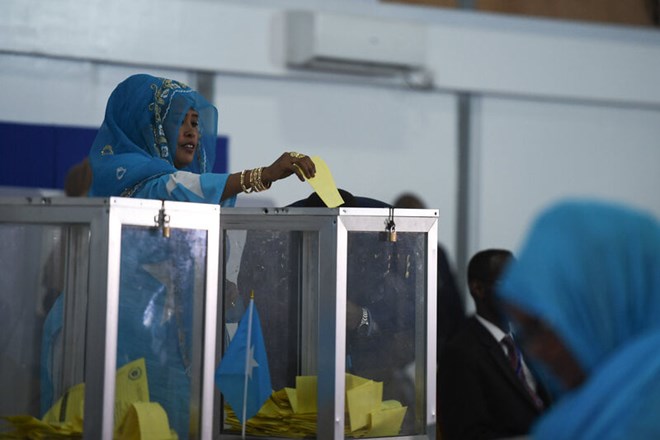
MOGADISHU (HOL) – The U.S Foreign Relations Committee has raised a red flag over possible violence in Somalia following failure by the country’s leadership to agree on elections.
Committee chairman Senator Bob Menendez said Tuesday in a statement Somalia was staring at possible conflict should the electoral impasse persist.dlock,” Menendez said.
The U.S. senator added that failure by President Mohamed Farmaajo and opposition to reach a deal ‘threatens the Somali people’s hard-fought political and economic gains over the last decade, placing the broader stability of the country in grave jeopardy.’
Recognizing Al Shabaab will seek any opportunity to exploit political chaos to further its campaign of terror, I call on all parties to immediately disengage from the politics of personal gain and resolve their remaining disagreements on the conduct of elections without delay,”
Senator Menendez added. His remarks follow similar concerns by the State Department, which has also called for immediate talks.
Ned Price, the United States Department of State spokesman, opened the department’s daily press briefing on Tuesday with a brief statement on Somalia. Price said the U.S. government remains concerned about the lack of an electoral agreement on Somalia and urged leaders to find a pathway to immediate elections.
https://www.youtube.com/embed/7VnC6QLmmEg?start=32
“The United States is deeply concerned about the absence of an election implementation agreement in Somalia. While this is an issue for Somalis to resolve, the United States views immediate elections as critical to Somalia’s future. Consensus can be reached. We call on Somalia’s leaders to resume their dialogue urgently so that national elections can take place now. The impasse hinders pressing reform and counterterrorism efforts, and continued delays will only increase the risk of instability.”
Price reiterated that the U.S. would not endorse parallel or partial elections or violence.
“It is the responsibility and the duty of national and regional leaders to act in the interests of the people of Somalia, who, of course, deserve the best from their leaders. Partial, parallel, or alternative election processes, including prolonged interim governing arrangements, would increase prospects for instability and be a major setback for Somalia. The United States opposes the use of violence by any party. We remain committed to the development of democracy in Somalia, and we want Somalis to enjoy the long-term stability, prosperity, and peace they deserve.”
Somalia’s lack of election deal extremely serious: EU
Somalia’s lack of election deal extremely serious: EU




Source: Anadoleu Agency, Tuesday February 9, 2021
European Union also ask nation’s leaders to show leadership, not make inflammatory statements
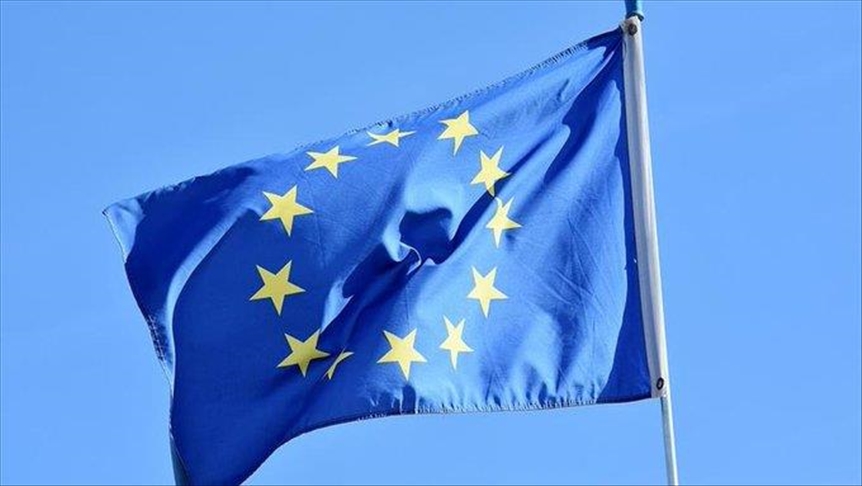
MOGADISHU, Somalia—The European Union said Monday that Somalia’s lack of agreements to conduct the next general election is extremely serious.
“It is crucial to continue to engage constructively to agree on the implementation of a national electoral process,” said EU foreign policy chief Josep Borrell in a statement.He said the current political stalemate is damaging the confidence of the bloc in the progress of Somalia.
“Any parallel or partial process or an extension of the current mandate of the institutions, which is not technical in nature, would be considered as a severe setback,” he added.
The EU encouraged Somalia’s leaders to resolve the political deadlock that threatens the country’s future and conduct elections as soon as possible.
It urged political stakeholders to show leadership and avoid statements that may incite violence.
Somali leader’s latest election conference in Dhusamareb, the capital of Galmudug State, ended without agreement and international partners have called for the resumption of talks.

